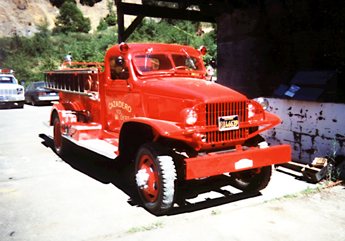Fluid leaking from a garbage truck in the streets of Tularosa, New Mexico, tested positive for E. coli a few days ago.
The vehicle was inspected after residents noticed the leak.
Tularosa Mayor Ray Córdova then inspected the vehicle and smelled something extremely foul coming from it. That’s when he told residents to take samples of the fluid so he could send it off to a lab for testing.
Those tests came back positive for the E. coli bacteria…
On Thursday Alamo Disposal owner Art Cardiel said the leak came from a crack in the truck. However he also said believes the E. coli is coming from the bacteria in people’s trash and not the truck itself.
"In this area, a lot of people grow their own fruit because there’s a lot of water," Cardiel said. "Now how am I supposed to have any control over what I put in my truck that comes out of their trash cans?"
The owner of the company, Alamo Disposal, has been given 10 days to fix the leak.
In the meantime, this fluid can continue to leak into people’s gardens, contaminating produce – “fresh and local” produce.
Local producers tend to be more careful because it is often their own families, friends and neighbors who will eat the produce.
Be on the safe side, stock up now on local tomatoes, peppers and other fresh produce and preserve them for the winter.
Be on the safe side? Really? What if there’s a truck with E. coli-contaminated fluids leaking around?


 According to the
According to the